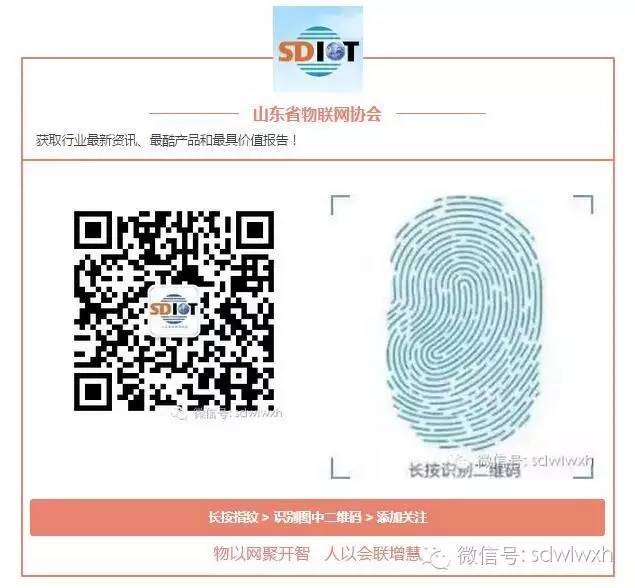After the Internet, the Internet of Things (IoT) will be a major development trend. The release of various smart hardware and the continuous updates in network technology are also accelerating the arrival of this “connected world” era. For developers, understanding the major IoT development platforms is essential to make achievements in this booming field. Today, I will take you through an overview of the eight major IoT platforms in China.
Baidu IoT Hub
Baidu IoT Hub is a fully managed cloud service that helps establish bidirectional communication between devices and the cloud, supporting massive data collection, monitoring, fault prediction, and other IoT scenarios.
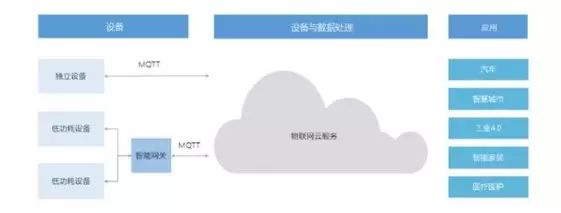
Baidu IoT Hub supports the MQTT communication protocol and various programming languages, including C, C#, Python, and CLI command-line tools, while being compatible with mainstream hardware devices. It ensures data security through device-level authentication, policy authorization, bidirectional secure connections, and SS transmission, while integrating with Baidu’s big data services to provide data analysis services.
The process to access Baidu IoT Hub is: Register an open cloud account → Create instance endpoint → Create thing → Create principal → Create policy → Configure MQTT client. Currently, Baidu IoT Hub is free of charge.
Alibaba Cloud IoT Suite
Alibaba Cloud IoT Suite helps developers build secure and high-performance data channels, facilitating bidirectional communication between terminals (such as sensors, actuators, embedded devices, or smart appliances) and the cloud. It supports five major application scenarios: device-to-cloud, cloud-to-device, asynchronous requests between devices and the cloud, and cross-vendor device interconnection.
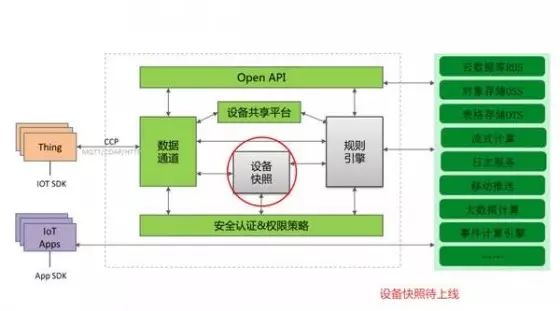
Alibaba Cloud IoT Suite Architecture
Users can implement Pub/Sub asynchronous communication based on the CCP protocol or use remote procedure call (RPC) communication mode for device-to-cloud communication. Additionally, users can connect to Alibaba Cloud IoT via the open-source MQTT protocol to achieve Pub/Sub asynchronous communication.
In terms of security, the IoT Suite provides multiple protections to ensure the security of device-cloud interactions. In terms of performance, the IoT Suite can support connections for billions of devices and handle millions of concurrent messages. The IoT Suite also provides a one-stop managed service, from data collection to computation to storage, allowing users to configure rules directly on the web without needing to purchase servers or deploy distributed architectures. Through the rules engine, users can achieve full-stack services such as collection + computation + storage.
QQ IoT
The QQ IoT platform aims to provide core capabilities such as the QQ account system, friend relationship chain, QQ message channel, and audio/video services to partners in the fields of wearable devices, smart home, smart automotive, and traditional hardware, enabling interactions between users and devices, devices and devices, and devices and services. Leveraging Tencent QQ’s vast client base and cloud services, it helps traditional industries achieve digital transformation on a larger scale.
Currently, QQ IoT devices include five major categories: audio/video products, communication interaction products, data collection products, and wireless control products. Its functionalities extend from rapid IoT access, APP development and maintenance, and messaging/file communication capabilities to advanced capabilities such as customized cloud services (statistics, analysis, storage, etc.) and integrated identity recognition capabilities (not yet launched).
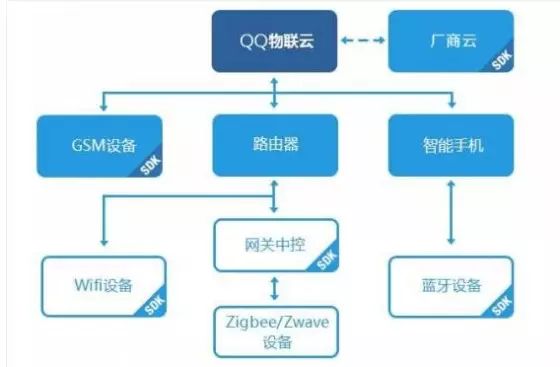
QQ IoT Architecture
Currently, QQ IoT is presented in the form of a lightweight APP. Once a user binds a smart device, the first interface they enter from the “My Devices” list is the lightweight APP of that device. The lightweight APP features a front-end JS interface deviceAPI for controlling devices, basic capabilities for sending and receiving messages, as well as unique capabilities such as video calls, image uploads, and sharing.
JD Micro Link
JD Micro Link is an intelligent platform that JD.com is fully building for future smart living, aiming to help smart hardware manufacturers create better smart hardware products and provide consumers with a one-stop smart product experience. It features APP connection, smart home, and smart health functionalities.
When developers develop on the JD Micro Link platform, they can collaborate with module and chip manufacturers that have partnerships with JD.com. Product firmware needs to integrate the JD Micro Link JoyLink protocol, and JD.com currently provides SDKs and debugging tools for the JoyLink protocol.
After the R&D phase, developers need to register their products that interface with JD Micro Link in the developer center, which involves the following process: Apply to become a developer → Create product → Enter product functionality → HTML5 configuration → Product release. The HTML5 development must comply with JD Micro Link’s interaction and development specifications.
Currently, JD Micro Link is open to third-party developers, exposing JD Micro Link data through JOS (JD Open Service) interfaces to third-party developers. Developers can access JD Smart Cloud Open Services and develop third-party applications with functionalities similar to Micro Link using existing interfaces. Users can use applications developed by third-party developers without using JD Micro Link to access the list of devices bound to them in JD Micro Link and control authorized devices.
Gizwits IoT Cloud Service Platform and Smart Hardware Self-Development Platform
The Gizwits platform is an open platform dedicated to IoT and smart hardware cloud services. The platform provides capabilities covering the entire lifecycle of smart hardware access and operation management, from defining products, device-side development and debugging, application development, product testing, to operational management.
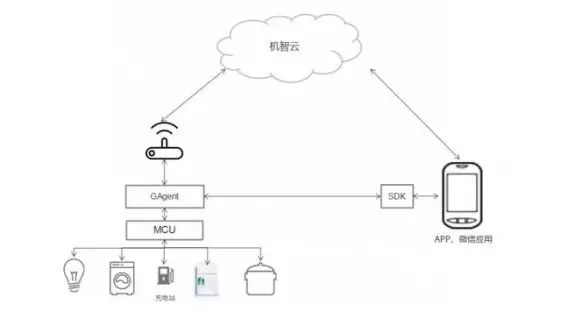
Gizwits IoT Cloud Service Platform Architecture
The Gizwits platform provides developers with self-service smart hardware development tools and open cloud services. Through user-friendly tools, continuously enhanced SDKs, and API service capabilities, it minimizes the technical barriers to IoT hardware development, reduces R&D costs, and increases product launch speed for developers, helping them upgrade hardware intelligence and better connect and serve end consumers.
The Gizwits platform features IoT PaaS services, enterprise SaaS services, and GDMS functionalities, along with self-service development tools, GoKit development kits, and developer services.
Qingke Cloud FogCloud
Qingke Cloud FogCloud provides developers with convenient smart hardware access services, along with powerful cloud services including product/APP management, message channels, and data storage. It offers rich cloud functions, allowing developers to focus on top-level applications without spending effort on backend processing, underlying construction, protocol conversion, and other tasks.
The interaction process between devices or APPs connected to Qingke Cloud FogCloud and the cloud includes registration, binding, and communication. The registration and binding processes use FogCloud’s Open API, while communication uses FogCloud’s MQTT server.
Ablecloud IoT Self-Development and Big Data Cloud Platform
Ablecloud IoT Self-Development and Big Data Cloud Platform is aimed at IoT hardware manufacturers, providing device networking and management, remote viewing and control, customized cloud functionality development, and massive hardware data storage and analysis infrastructure to accelerate hardware connectivity and intelligence.
Ablecloud IoT Self-Development and Big Data Cloud Platform includes an integrated development engine for cloud services, IoT functional components, and a solution supermarket, as well as a big data analysis engine.
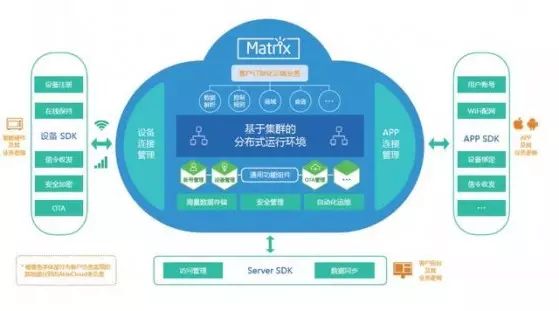
Ablecloud IoT Self-Development and Big Data Cloud Platform Architecture
Ablecloud IoT Self-Development and Big Data Cloud Platform provides networking firmware, solving connection management for tens of millions of devices, direct connection, and other contingency plans, and employs highly optimized multi-layer encryption algorithms at the network communication layer to ensure the security of devices and messages.
China Mobile IoT Open Platform OneNet
OneNET is an open and win-win device cloud platform built by China Mobile IoT Co., Ltd., providing simple cloud access, storage, computation, and display for various cross-platform IoT applications and industry solutions, enabling rapid development of IoT product applications and reducing development costs. It features IoT PaaS basic capabilities, SaaS business services, IoT data cloud, and a developer community.

China Mobile IoT Open Platform OneNet Architecture
The China Mobile IoT Open Platform features stream analysis, device cloud management, multi-protocol configuration, rapid generation of lightweight applications, APIs, and online debugging functionalities. The process for accessing the platform is: Login registration → Create product → Add device → Add data stream → View data → Create application.
Devices can connect to the platform via private and standard protocols. RGMP (remote gateway management protocol) is the platform’s private protocol, and the platform does not provide protocol message descriptions. Standard protocols include HTTP, EDP, MQTT, MODBUS, JT/T808, and the platform provides message description documents for each protocol.
